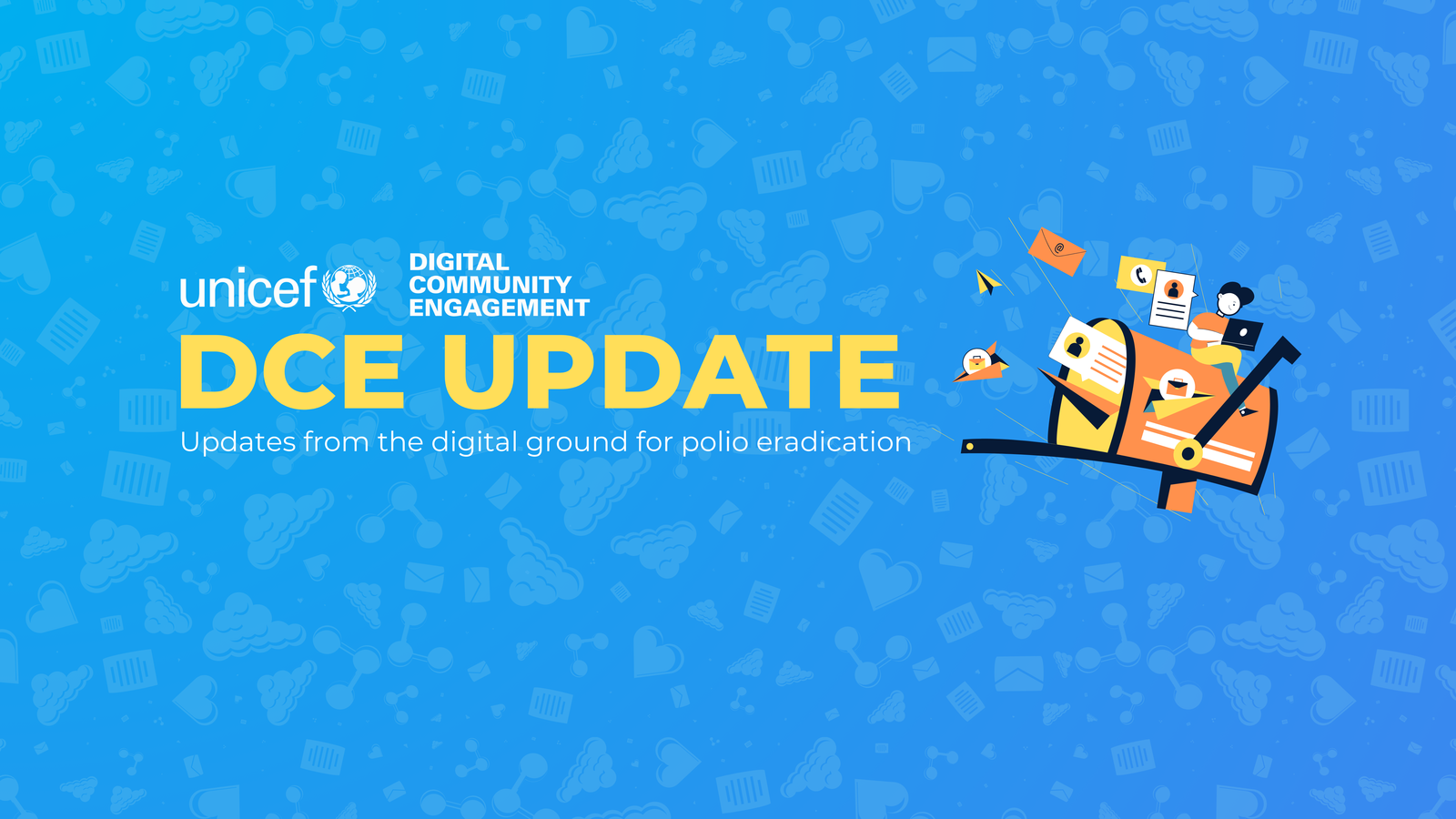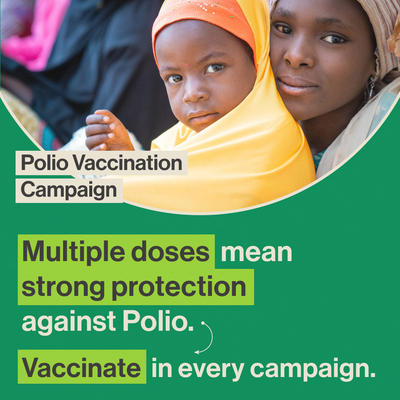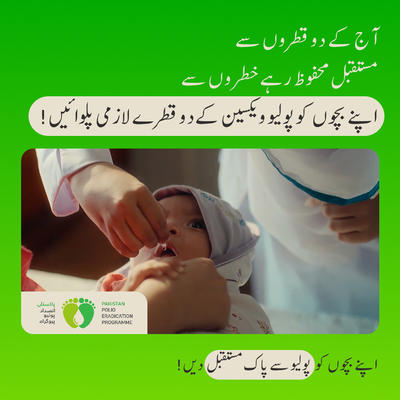Digital Community Engagement
In today’s interconnected world, digital platforms shape how communities access and share health information. To build trust and encourage vaccine uptake, UNICEF’s Polio Eradication Initiative leverages Digital Community Engagement (DCE) – a strategy that uses social listening, digital influencers, community-driven content, and targeted digital advertising to reach people where they are.
Through real-time engagement, localized messaging, and partnerships with digital platforms, polio communication teams connect with communities, amplify trusted voices, and address concerns. By working with local influencers, health professionals, and community leaders, DCE ensures accurate, timely, and culturally relevant information reaches those who need it most.
The UNICEF Polio DCE Strategy (2025-2026) outlines a data-driven approach to scaling digital engagement efforts, integrating emerging tools like AI-powered analytics, and fostering cross-sectoral collaboration. Insights from past initiatives are captured in the DCE Report, which highlights best practices, challenges, and innovations in digital engagement for polio eradication.
Misinformation Management
Misinformation spreads rapidly, affecting vaccine confidence and public health. UNICEF takes a proactive, evidence-based approach to detect, analyze, and counter vaccine misinformation at the local level.
Using insights from digital monitoring and behavioral science, polio teams work to identify false narratives, engage with communities, and promote factual content. The Polio Messaging Guide provides communication professionals with practical tools and tested messaging strategies to strengthen public trust and ensure communities have access to reliable information.
Digital Community Engagement Newsletter





